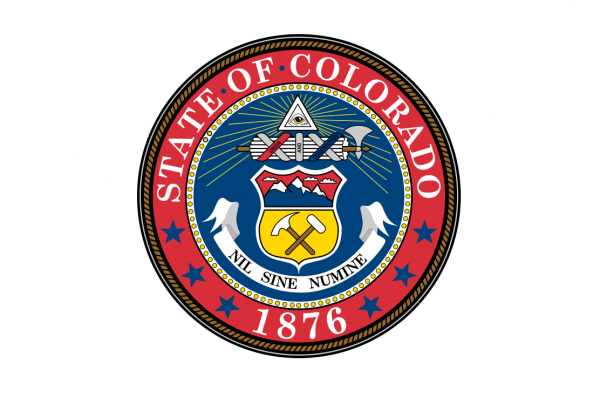By John Meylor

On Wednesday, Sept. 4, Colorado Governor Jared Polis signed House Bill 1001, a measure introduced to find a compromise amongst the Colorado Legislature between lowering property taxes without significantly cutting funding for public schools and fire districts.
HB-1001 addresses property tax relief in response to significant increases in property taxes. The bill would reduce the assessed rates, or calculated tax rates for property taxes, for most properties until 2026 – the 2025 tax year. For nonresidential properties, the rate will decrease from 29% to 25% by 2027. For residential properties, different rates will apply for local governments and school districts, with the goal of largely reducing the amount of taxes for property owners. In addition to this, the law would cap annual increases on the amount of revenue gained from property tax that would go to local governments, such as fire districts and public school districts. Local governments’ revenue can grow by no more than 5.25% per year, while school districts are capped at 6%. However, these limits include a provision allowing governments to roll over unused portions of their cap to future assessment cycles.
HB-1001 was drafted as a response to the looming threat posed by ballot initiatives 50 and 108, two property tax measures being pushed to the November ballot by conservative lobby groups Advance Colorado and Colorado Concern. Initiative 50 looked to institute a constitutional 4% annual cap on total statewide Colorado property tax revenues, and force a statewide vote for any local district that wishes to keep revenues above that cap. Initiative 108 would cut residential property assessment rates to 5.7% and nonresidential property assessment rates to 24%, as well as mandate that the General Fund backfill all local districts.
This session marked the third extraordinary session under Gov. Polis’ 5-year tenure, and the second extraordinary session in two years. The session was especially controversial among Colorado legislators following their May session, in which the legislature passed SB 24-233, a bill that implemented property tax rate reductions and exemptions to avoid Initiatives 50 and 108 appearing on the November ballot. Despite the bill’s success in the initial session, the tax relief was deemed insufficient. Negotiations over the summer led the governor to call a special session to pass a compromise bill.
The disconnect between the legislators attempting to reach a compromise and entities pushing the ballot initiatives was a cause for concern throughout the initial hearings. Multiple representatives pointed out the absence of the major organizations involved in the original ballot initiative.
“We are all being called here to form a compromise that we thought we had already done back in May, to a point where one of the bill sponsors said we had brought ourselves to the point of avoiding catastrophe, and anything further would be catastrophic,” Rep. Emily Sirota of Arapahoe County said. “And yet, here we are considering something further. And I don’t even see the people that we are supposed to be negotiating with here.”
House Speaker Julie McCluskie was able to offer some explanation to the involvement with the bill’s negotiations and hearings.
“I have expressly invited proponents of 50 and 108 to appear today to speak to this committee and to the public about their position not only on House Bill 1001, but also to answer your questions and present the letter that has, I hope, reached all of you by now,”said McCluskie.“But the letter that they have put forward, is a commitment not to bring forward similar initiatives in the next three assessment cycles or six years.”
Despite the existence of this letter, co-signed by both Colorado Concern and Advance Colorado, the organizations declined to send representatives to the House hearings to testify.
“Beyond [the letter], I cannot comment on their participation today,” said McCluskie.
Colorado Concern released a statement on social media praising the legislator’s ability to find a compromise, while Advance Colorado president Michale Fields released an op-ed in the Denver Gazette expressing the organization’s pleasure with the tax relief provided in the passed bill.
Throughout the House’s three-day session of hearings and floor votes, higher education was the largest focus of the bill’s impacts. Concern was expressed that the initiatives’ framework to backfill local districts through mandates of the General Fund would lead to higher education becoming increasingly inaccessible to the general public. Todd Saliman, the president of the University of Colorado, spoke extensively about the potential negative impacts if a compromise was unable to be reached.
“From our math, if the ballot measures were to pass, that could cost the University of Colorado up to $120 million a year,” Saliman said. “And for us to offset that with tuition increases, that would require tuition increases of between seven and 21%. But of course, we wouldn’t only increase tuition, we would cut our budgets as well… higher education would definitely be at the front of the line when it comes to that. i’m We want predictability, and we think that this is a reasonable compromise.”
The Colorado Legislature concluded its special session on property tax after three and a half days. They aimed to preempt more severe tax-cut measures that could force the state to cover billions of dollars in lost revenue. Of the 13 bills introduced, only two were passed: HB-1001, with a 44-18 vote, and HB24B-1003, which offered permanent relief for controlled environment agriculture and greenhouse equipment owners, with a 47-16 vote. HB-1001 was amended to provide more property tax relief than SB 233 but less than the proposed ballot measures. Following a swift and decisive vote in the state senate, the bill was sent to Gov. Polis’ desk, where it was signed on the afternoon of September 6. A press release from the governor’s office celebrated the compromise as a major victory for property tax policy.
“This bill provides immediate as well as ongoing property tax relief for hardworking Coloradans by cutting the residential and commercial property tax rates and capping future increases,” the release stated. “The bill saves Coloradans money on utility bills while ending the property tax wars as well as protecting our schools and local taxing districts from the devastating effects of current ballot initiatives.”
Gov. Polis issued a statement praising the legislature for its decisive work in reaching the compromise as well.
“I appreciate the General Assembly coming together in a bipartisan way to pass this important legislation in the most recent special session,” said Gov. Polis.
Proponents of Initiatives 50 & 108 withdrew them from the ballot immediately upon the governor signing HB 1001.
Editor’s note: This article was originally published on Sept. 6, 2024 but has since been edited to include when Initiatives 50 and 108 had to be withdrawn by and that organizations Colorado Concern and Advance Colorado declined to send representatives to the House hearings to testify.
